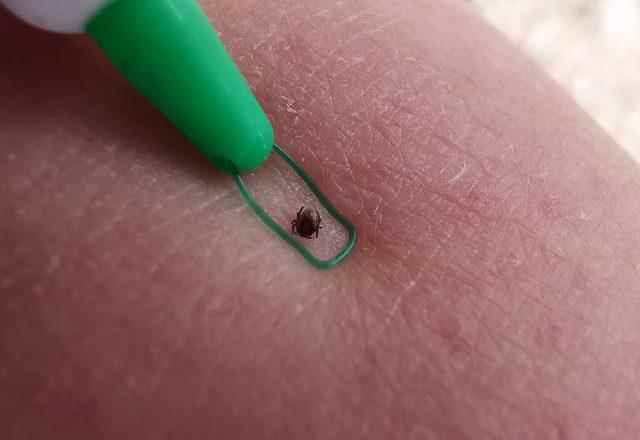Tick bites are a hot topic every year. Many people die from tick bites. Society considers tick bites unimportant and tries to treat them at home. However, this move leads to very dangerous situations. Clinical Microbiologist Dr. Ayşin Kılınç Toker said, “Unfortunately, our cases this year are somewhat troubled and fast. The risk of fatal bleeding is a little higher.”
RISING FEVER AND FATAL BLEEDING ARE OBSERVED
Dr. Ayşin Kılınç Toker, “The situation we call CCHF, which is transmitted by ticks in the Central Anatolia Region, especially in Tokat, Yozgat and Sivas, unfortunately started to be seen in many of our citizens from May to August. This is not only transmitted by ticks, but also to our citizens dealing with livestock as a result of infection with cattle and small cattle. In these citizens, especially a sudden rising fever of 40 degrees, can create a picture that starts with fatigue, muscle aches in the body, and progresses to fatal bleeding. At this point, we, as Kayseri, have started to accept patients from these regions since the beginning of May. Unfortunately, our cases this year It is somewhat troublesome and fast progressing.The risk of fatal bleeding is slightly higher.
BACK HOME NEED TO CHECK THE BODY

Therefore, it will be beneficial for our citizens to wear light-colored clothes that cover their bodies, and to pull their socks over their trousers, especially when they are outdoors. When they return home, they should check for ticks in the areas behind the ears, under the armpits, in the groin and behind the knees. In addition, we recommend that our citizens who are engaged in animal husbandry should apply to the hospital when they have any fever, sudden muscle pain and diarrhea.
THE TICK SHOULD NOT BE CONNECTED WITHOUT CONSCIOUSNESS

Toker also warned the citizens who noticed that the tick was sticking to his body and said, “You should definitely not touch the tick with your bare hands. If he can hold it tightly from the area closest to the body with a bag, glove, nylon or handkerchief and remove it in one move, he can do this. However, bursting the tick, burning it and using any flammable material “At this point, it is definitely inconvenient to spill the virus. At this point, the animal may mix the virus with more blood. If it cannot be removed in one go, they should definitely apply to the emergency services and ask the health workers for help in this regard,” he said.
